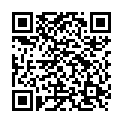|
|
|
| Module code: MST.ZP1 |
|
2V+2PA (4 hours per week) |
|
5 |
| Semester: according to optional course list |
| Mandatory course: no |
Language of instruction:
German |
Assessment:
Written and oral examination
[updated 05.06.2025]
|
E2829 (P241-0326) Electrical Engineering and Information Technology, Master, ASPO 01.04.2019
, optional course, technical, course inactive since 30.09.2022
MAM.2.1.2.19 (P241-0326) Engineering and Management, Master, ASPO 01.10.2013
, semester 1, optional course
MST.ZP1 Mechatronics and Sensor Technology, Master, ASPO 01.04.2016
, optional course, course inactive since 18.04.2016
MST.ZP1 Mechatronics and Sensor Technology, Master, ASPO 01.10.2011
, optional course
|
60 class hours (= 45 clock hours) over a 15-week period.
The total student study time is 150 hours (equivalent to 5 ECTS credits).
There are therefore 105 hours available for class preparation and follow-up work and exam preparation.
|
Recommended prerequisites (modules):
None.
|
Recommended as prerequisite for:
|
Module coordinator:
Prof. Dr.-Ing. Bernd Valeske |
Lecturer: Prof. Dr.-Ing. Bernd Valeske
[updated 10.08.2012]
|
Learning outcomes:
After successfully completing this module, students will be familiar with relevant quality parameters for materials and manufacturing processes and be able to classify and explain the tasks of NDT for quality assurance in production and within the framework of service life management.
They will be familiar with and able to explain the physical and metrological principles and functioning of standard NDT methods (VT, PT, MT, ET, IT, UT, RT).
For typical fields of application (testing tasks), such as for cast and forged materials, welded joints, coatings, surface-finished materials, etc., students will be able to select the appropriate NDT methods and describe their application in specific cases.
Students will be familiar with NDT device technology (sensors, electronics, signal generation, recording, and evaluation) and be able to apply it in practice for selected processes (UT, IT, MT/VT).
[updated 05.06.2025]
|
Module content:
Introduction: NDT tasks, quality assurance with NDT
Service life, defects, and quality deficiencies terms used in NDT
Classification of NDT methods, overview of NDT methods
Standard NDT procedures: Basics, ability to perform, detection limits, instrumentation, standards
- visual testing (VT)
- liquid penetrant testing (PT)
- flux leakage and magnetic particle testing (MT)
- eddy current testing (ET)
- infrared thermography (IT)
- ultrasonic testing (UT)
- radiographic testing (RT)
Correct selection of suitable NDT methods, NDT suitability for different materials and manufacturing processes (cast and forged materials, coating, surface finishing, hardening, joining processes)
Test planning and test strategy
Basics of test-compliant design
NDT applications, case studies
Practical training: (1) VT / PT / MT, (2) IT, (3) UT
Current developments in the field of NDT: Outlook and innovations
[updated 05.06.2025]
|
Teaching methods/Media:
Interactive lecture with exam and practical exercises as well as project work, supervised laboratory exercises in small groups with quizzes, accompanying/supervised project work followed by a written exam,
Transparencies with animations, schematic and real images.
[updated 05.06.2025]
|
Recommended or required reading:
Krautkrämer: Zerstörungsfreie Werkstoffprüfung;
Deutsch: Zerstörungsfreie Prüfung in der Schweißtechnik;
ASNT: Nondestructive Testing Handbook;
ASM Handbook: Nondestructive Evaluation and Quality Control
[updated 05.06.2025]
|


